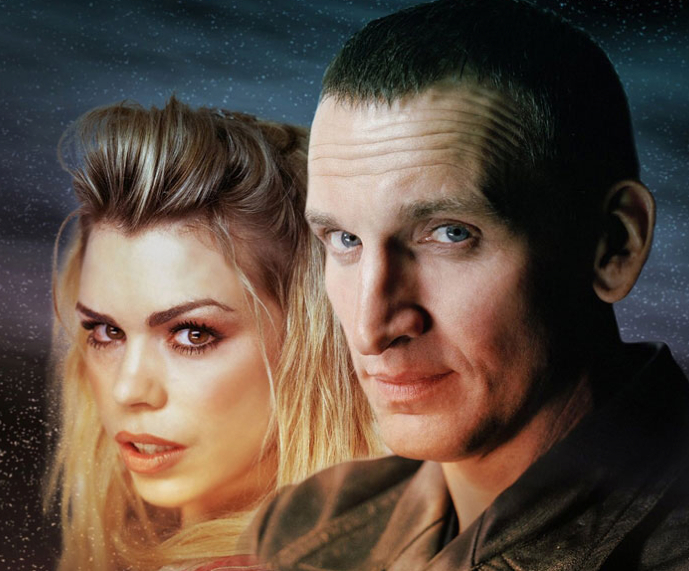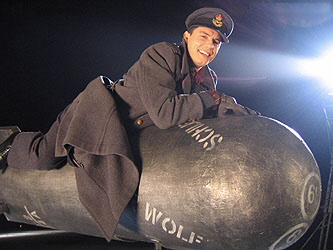Back in 2005, fans of the UK's 40-year-old fantasy cult fave Doctor Who were hopeful but not necessarily optimistic. The BBC franchise that began back in 1963 as a somewhat cheesy kids' adventure was being reinvented -- yet again -- much like The Doctor himself.

How shocked were we to discover that the ninth inhabitant of the character would resuscitate the 10-years-dead franchise into a surprisingly grownup must-see, bursting with life, wit, warmth, heartbreak and pulsating adventure? Revisit the re-creation in an all-day marathon of
the new Doctor Who (Thursday 8 a.m.-4 p.m. ET, Sci Fi) that cherry-picks episodes from its first season to showcase Christopher Eccleston's dynamic embodiment of the affectionate rejuvenation by writer Russell T. Davies (creator of Britain's original
Queer as Folk).
All this, and the introduction of John Barrowman's omnisexual hottie Captain Jack Harkness, too!
The original Doctor Who hardly started life like the smartly cinematic thrill we see now. Those initial '60s episodes were done in-studio on videotape by a BBC that hadn't yet switched from black and white to color production. The "scary" villains and "special" effects were cobbled together props and tricks of dubious quality, and the entire proceeding fairly defined the term "low budget." But its creative ideas were tantalizing enough to interest adults in the youth-aimed tale of an alien "time lord" bouncing through space in his phone booth TARDIS, righting wrongs with the aid of youthful human "companions" encountered along the way.
The Doctor (no other name, prompting the "who" question) was quickly established as being able to regenerate himself into various incarnations, allowing the series to endure over the next quarter-century with seven different stars, from elderly First Doctor William Hartnell to playful Fourth Doctor Tom Baker (whose PBS-imported episodes cemented the series' American appeal). That effectively re-booted the character's attitudes as the series' savvy increased over its original 26-year run, ending in 1989. A first attempt to revive the studio-bound tale as a filmic adventure failed in 1996, when the BBC and our Fox network presented a one-off TV movie (with Paul McGann) that failed to draw enough interest to continue.
But Russell T. Davies had grown up with The Doctor, and the acclaimed writer had actually started with the BBC by writing for children's programs, before maturing into the gay-themed drama Queer as Folk and the challenging TV movie The Second Coming, starring Christopher Eccleston as a modern-day messiah. Davies could feel The Doctor in his bones, enabling him to create a 21st century incarnation for Eccleston that respected the plainer original yet robustly delved deep into a more complex contemporary traveler.
Eccleston's first series/season was a smash on both sides of the Atlantic, establishing the modernized model for Tenth Doctor David Tennant (Viva Blackpool) to take over for three more series/seasons. Both actors played well against John Barrowman's more adult time tripper Captain Jack, who was launched into his own more mature drama, the current hit Torchwood (the title an anagram of Doctor Who).

Barrowman's three-part introduction is among the episodes airing Thursday in Sci Fi's flashback marathon, which begins with the 2005 re-invention's instantly impressive return introducing Eccleston and companion Billie Piper, now starring in Showtime's
Secret Diary of a Call Girl. (Full Sci Fi marathon lineup
here.)
Be aware there's an Eleventh Doctor on the way. Tennant plans to leave the role after the coming season's specials, to be succeeded by Matt Smith, who at 28 will be the youngest doctor yet.
Doctor Who may just regenerate forever.